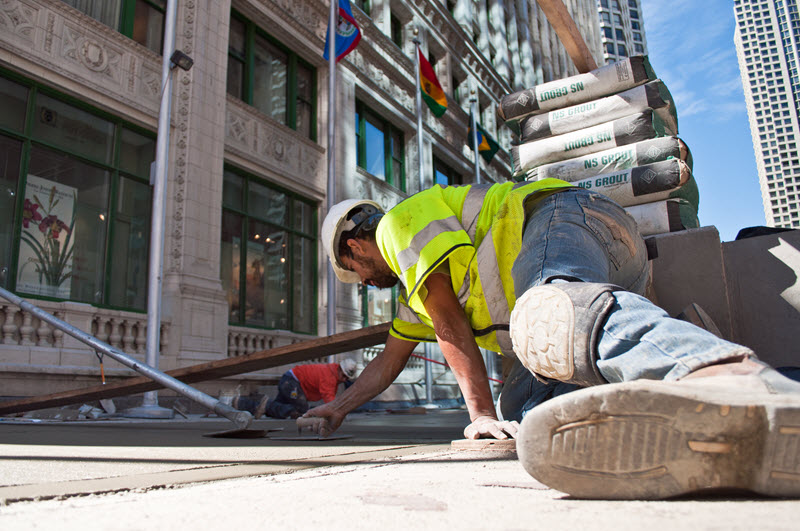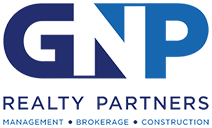It’s common for condo boards to approve larger jobs that exceed the standard maintenance and repair typically handled by a property manager, such as a renovation, an addition or other new construction project. However, once your condo board or HOA is ready to kickstart the project, or is just getting the conversation started, you’ll want to consider what options best fit with stated goals. Many HOAs believe that hiring a construction manager is the best option, but it makes sense to inquire with your property manager about suggested construction management practices, partners, costs, and services. Why? Read on to find out.
Want to learn more about Construction Management?
Request Information | or Call Us at 312-329-8400
Five Key Reasons to Involve Your Property Manager in Planned Construction Management Activities

It is important to involve your property manager in plans for larger construction projects for a variety of reasons. To start, your property management company might have specific rules in place about how construction projects get done, including requirements that dictate everything from hours of operation to approved construction management partners. In some cases, your property management company might even provide construction management or project management services. This could help to:
- Save your HOA money by not paying a construction manager salary
- Streamline the construction management project
- Ease the stresses of working with another service provider should you hire a construction project manager or multiple contractors if you don’t
- Ensure that the construction team or other contractors have been property vetted
- Take over responsibility and liability for the project
Using an Experienced Industry Professional to Manage Your Construction Project
Additionally, when your property management team assists with HOA planned construction projects, your board doesn’t have to take on the responsibility of leading the project or selecting a project manager. By having your property manager steer the project, you may actually end up saving your HOA even more money by letting a professional with experience in construction management and contractor negotiations take the lead.
In addition to experience handling construction permits, vetting contractors, comparing bids, negotiating and inspecting work, typical knowledge areas that an experienced construction management professional can contribute to a successful project outcome include:
- Architecture
- Construction
- Engineering
- Green Building
- Project management
Will the Property Manager act as a General Contractor too?
When discussing construction management, sometimes HOAs get caught up in comparing a commercial construction manager vs residential construction manager. However, it’s far more important to think about the differences between a general contractor vs construction managers. Here’s why.
General contractors typically manage all subcontractors and suppliers, taking charge of the “big picture” work of the project as well as the day-to-day minutiae. Construction management can function essentially the same way, but it doesn’t have to. One of the pros and cons of being a construction manager is that the individual may oversee the nitty-gritty of the overall schedule. However, construction managers may also serve in a more advisory capacity, offering advice, coordinating with architects, interior designers, and the like — and leaving the details to you, the HOA rep.
As you may imagine, such an arrangement with your existing property management company can cause problems, particularly if you’re expecting your property manager to handle the daily matters associated with construction. Before you dive in, you should ask yourself several questions:
- Will the project require challenging logistical and personnel management? If so, is the HOA willing to assume these duties?
- Is my property manager willing to serve both as a construction manager and a general contractor?
- Does the HOA representative have a background in construction or is otherwise construction savvy?
- Does the HOA understand the workflow and materials flow necessary for the successful completion of the project?
Answering these questions should help you know where you stand regarding your project and exactly what role your property manager will need to assume to best help you.
What Your Property Manager Can Do Post-Construction
Many of the standard post-construction tasks should come naturally to a property manager, no matter his or her specific expertise. Some of these common steps include:
- A walk through of the built-out space
- Testing any newly installed systems to ensure that they work properly
- Training occupants on the proper use of the new systems
- Communicating move-in dates
Other standard post-construction assignments, such as terminating contracts with suppliers, may not be a duty that your property manager typically assumes. That’s why it’s particularly important to determine exactly what kind of services that your property management company is willing and able to perform.
Additional Benefits Offered by Using Your Property Manager for Construction Management Needs
If your property management firm provides construction management services, your HOA should consider themselves lucky. When such services are available your condo board or HOA is guaranteed to have someone in charge that is working in support of the building and the condo owners’ best interests.
A few more benefits and cost savings that can result from working with your property manager on HOA construction projects include:
- Intimate knowledge of existing condo building rules and regulation
- Research and analysis of project options, costs, materials and suppliers
- Identification of project requirements and specifications
- More cost-effective pricing from years of experience and relationships with vendors
- Active management of the available budget
- Daily communication with various contractors and knowledge of on-premises workers
If your condo board is considering whether or not to hire a construction manager for an upcoming project, it’s best to get your property manager involved in the conversation. Even if additional costs will be added to the project for the service of using your property manager, you need to consider the expected value of the completed project along with the value of having someone fulfill the construction manager role. Cutting corners in any way, which includes having a board member manage the project, could backfire, costing everyone more time, money and headaches to rectify subpar project outcomes.
If you need a manager that can help drive a successful project, look no further than GNP Realty. In addition to facilitating both commercial and residential sales and leasing, we specialize in commercial construction consulting and general contracting. We can conduct feasibility analyses and perform necessary due diligence in order to ensure that your project will succeed. In addition to helping our clients clarify their goals, estimate budgets, and establish construction schedules, we select a construction team that includes subcontractors and other professionals (e.g., architects, engineers). We are a firm that can manage every aspect of the process, and we’ve done so throughout Chicago and the wider Chicagoland area for decades. Contact us today to learn how we can help you.







